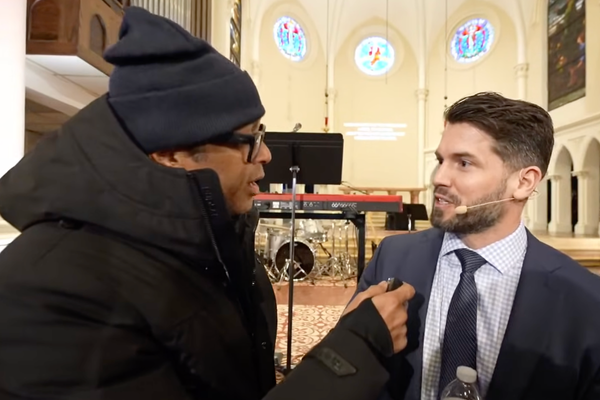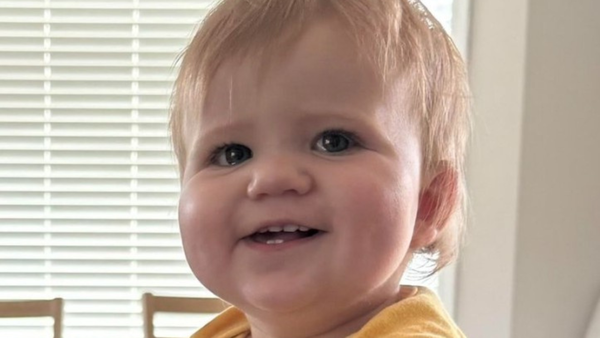Kirk Speraw announced his retirement earlier this week as an assistant coach at the University of Iowa.
If life were fair, he would be retiring after nearly three decades as the head basketball coach at UCF.
In hindsight, the firing of Speraw as UCF’s longtime basketball coach a dozen years ago turned out to be one of the biggest injustices in UCF sports history.
For 17 years, Speraw was a good basketball coach, a mentor to his players and a loyal employee who never did anything to embarrass the program.
And maybe that was the problem. In the rancid cesspool of college basketball, Speraw refused to blatantly break the rules to bring in elite talent even though that’s seemingly what UCF’s administration at the time wanted him to do.
During Speraw’s tenure, he took the Knights to their first four NCAA Tournaments (they’ve been to only one since his departure) and became the school’s all-time winningest coach. And he did it with little administrative support throughout much of his career. Speraw was given a shoestring budget, operated under short-term contracts and was set up to fail by former athletic director Keith Tribble.
Speraw was eventually fired by Tribble, who clearly wanted to bring in his own coach and upgrade recruiting by operating outside the NCAA rules. How do we know this? Because, in one of the darkest days in UCF sports history, Tribble himself was eventually fired by the school for misleading NCAA investigators and for being the one largely responsible for getting the Knights put on NCAA probation. It was Tribble himself who gave a convicted felon and a runner for a sports agent access to UCF’s program in a failed attempt to steer top recruits here.
As you would expect, Speraw took the high road when I spoke with him earlier this week and asked him if he holds any grudges against Tribble or any of UCF’s past administrators for their lack of commitment to his program. Instead, he lauded Steve Sloan, the original AD who hired him.
“I think back on some of that stuff and it’s disappointing that we didn’t get the support that maybe we should have at certain times,” Speraw says. “But let me say this, Steve Sloan was tremendous and absolutely supportive and doesn’t get the credit he deserves for running an athletic program on a tight budget and not putting the program into debt because he was told not to put the program in debt. Other ADs had some great attributes, too, and were supportive at certain times, but not as supportive at other times.
“I’m proud of the program we had at UCF,” Speraw added. “We always tried to do things the right way. It was such a transformative time for the university and the athletic teams. Moving the program through all the transitions of difference conferences, the financial issues, the limited resources during my time there — and, yet, we were still competitive at a high level, got to the NCAA Tournament four times and played really well in some of those NCAA Tournament games. When you look back on it, man, we went through a lot of stuff, fought every day to be the best we could be and battled through a lot of adversity to build the program to a point where it could take huge steps later on.”
After leaving UCF, Speraw became the top assistant at his alma mater under successful Iowa head coach Fran McCaffery and has been there for 12 years. When asked why he finally decided to retire, Speraw says it was a confluence of circumstances.
The recent deaths of his mother and mother-in-law got Speraw thinking about his own mortality. However, he also admits that the tumultuous state of college athletics — with Name, Image and Likeness and the transfer portal — cemented his decision. Speraw, a former walk-on who eventually earned a scholarship as a basketball player at Iowa, believes the current climate in college basketball is such that too many players simply aren’t willing to take their lumps and wait their turn.
“You feel like you’re going to lose half your roster every season because, it seems, nobody’s happy with their roles or their playing time,” Speraw laments. “I’m seeing more and more parents in sports and society who don’t see the value of their kids facing adversity, fighting through the adversity and coming out on the other side of it with a feeling of accomplishment. I’ve always thought that whatever you’re doing — whether you’re an artist, a musician or an athlete — that there’s great value to having failed a few times. If you come upon an obstacle and you change, adapt and correct your mistakes to overcome that obstacle then I believe you become much better at your craft because of it. Well, nobody wants to go through that process anymore.”
Likewise, Speraw admits he doesn’t really want to go through the process of adapting to the changing landscape. At age 65, Speraw says this is the perfect time to step off the coaching treadmill so he and Tracy, his wife of nearly 40 years, can start enjoying their five grandchildren — something his own dad never got a chance to do.
Speraw tells the story of his late father Bud; a man who literally poured his heart into being a high school baseball coach in Iowa.
“My father was go, go, go all the time as a high school coach,” Speraw recalls. “It was the first game of the 1989 season, and he’s coaching third base and sends a guy home from second. The kid scores and the ump looks down the third-base line, and my dad is down in the coach’s box. He had heart attack right there on the field and they couldn’t revive him. He died at 62, and he never really got to spend time with all the grandkids. It’s hard for me to think that I’m now older than my father was when he passed away. “
His father’s gravestone — like that of his grandfather, who also was a baseball coach — is inscribed with the famous quote by Grantland Rice.
“For when the One Great Scorer comes,
To mark against your name,
He writes not that you won or lost,
But how you played the game.”
“Even as a kid, when I visited my grandpa’s grave, that quote always stuck with me,” Speraw says. “It’s how I’ve tried to live my life and coach my teams.”
For 43 years in the profession, Kirk Speraw more than lived up to Rice’s words.
He’s been a good coach and an even better man.
It’s just too bad he’s not retiring from UCF.







